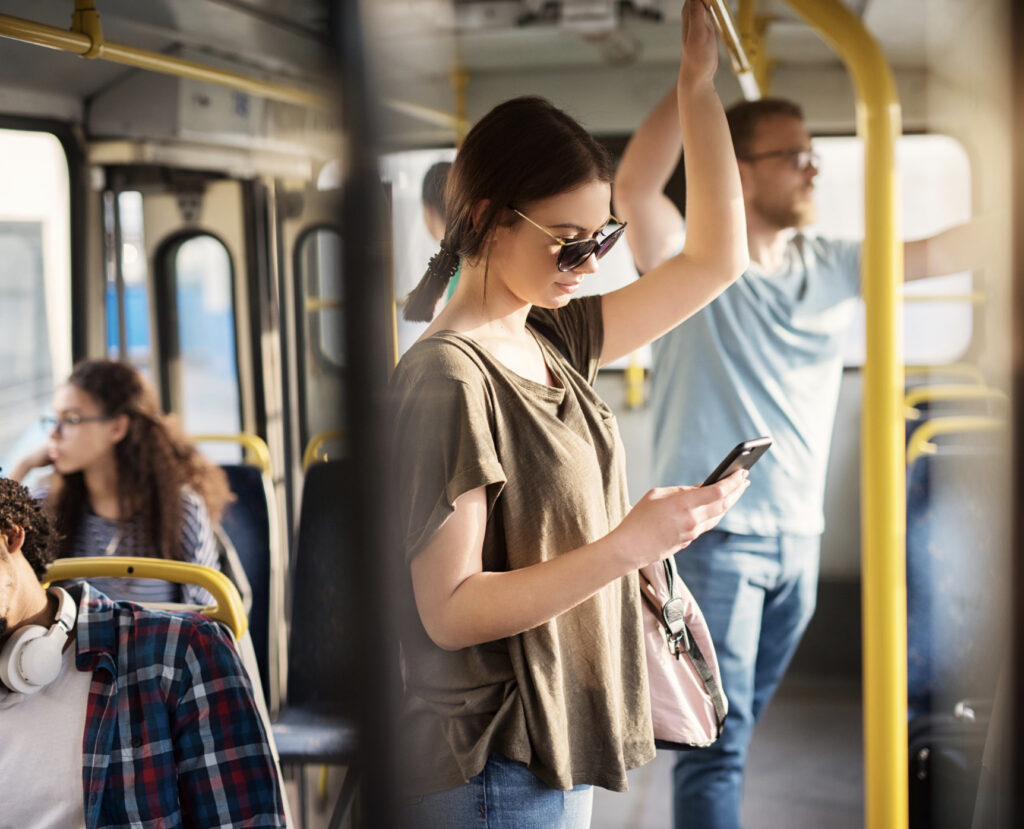Mobility as a Service, otherwise known as MaaS, can transform commuting and business travel, helping employers move away from troublesome ‘grey fleet’ vehicles. James Lancaster, Chair of the Urban Mobility Partnership, explains how
In an increasingly data-driven and digital world, technology has the power to transform the way we live, travel and interact, for the better. This is particularly apparent in the transport sector with the emergence of Mobility as a Service, otherwise known as MaaS. MaaS can improve accessibility and cost-efficiency of public and shared transport and combat congestion, pollution and carbon emissions.
Most importantly, MaaS can dramatically change the way that consumers travel – it steers people away from private car usage, and towards a sustainable, public, shared and active travel future.
In a truly developed MaaS platform, a user would have the option to access bus, train or tram routes and tickets, their local bike sharing and car club vehicles, among many other services. MaaS brings together all available travel options, alongside live updates, smart ticketing and digital payments. MaaS can also offer personalised options for the user – taking into account, for example, mobility or accessibility needs or lower carbon options.
These solutions represent the future of transport and mobility – one that doesn’t rely on single occupancy private vehicle usage or ownership, and instead embraces a forward-thinking, sustainable and multi-modal transport model.
Taking the opportunity
While the usage and understanding of MaaS has been growing since it first emerged around a decade ago, as we return to normality after the Covid-19 pandemic, there is an opportunity for this technology to be developed and widely embraced. During the pandemic and subsequent lockdowns, there has been a global decline in usage of public and shared transport – on account of Government messaging and anxieties over Covid-19 transmission. Whilst this has been understandable during the heights of the pandemic, it has led to lower consumer confidence in public and shared transport, and an increase in the usage of private vehicles – impacts we have yet to see reversed despite the UK and many other countries returning to some form of normality before the emergence of Omicron. MaaS can encourage a safe return to public and shared travel post-Covid-19. MaaS solutions, for example, can formulate the safest or least busy route, or offer active travel options which would allow users to safely travel with very little risk, thus increasing consumer confidence and decreasing their reliance on private vehicle usage.
Alongside the potential to encourage consumers back to shared and public transport post-Covid, we can also expect that the desire for an integrated, data and demand-driven transport platform will continue – in the same vein that consumers have come to expect on-demand technology in many other parts of their lives, such as through on-demand TV, music and food delivery services.
Business travel
Organisations and employers can also help drive the adoption of MaaS and incentivise staff to switch to cleaner modes of transport. If adopted effectively and efficiently by businesses and the public sector, employers can encourage staff members to use alternatives to their privately owned vehicles for commuting. Employers can offer flexible travel options alongside MaaS, such as implementing car club or cycle hire schemes, or allowing staff flexible working time depending on the most accessible and efficient bus, tram or train times. This in turn helps to tackle the challenge of grey fleet – wherein employees use their own cars for business purposes and can be reimbursed on the mileage – as the increased availability and adoption of MaaS can help organisations to reduce staff reliance on their own private vehicles. Despite an increased focus on reducing emissions and businesses and the public sector, supporting climate change ambitions in recent years, the use of grey fleet is still widespread. Analysis of local authorities’ use of grey fleet showed that in one year, across 400 councils in the UK, over 340 million miles were driven using grey fleet. Given the average age of a privately owned car in the UK is 8.5 years old, these are 340 million miles driven in some of the most polluting vehicles on the road. MaaS, by making public and shared transport more accessible, convenient and cost efficient, can support organisations transition away from grey fleet use and promote public, shared and active travel as an alternative to using privately owned vehicles for business travel.
Corporate Mobility
The use of MaaS should also be incorporated into corporate mobility – that is, the daily commute undertaken by employees to work and back home, and this should focus on encouraging employees to make use of more sustainable solutions, via MaaS rather than their privately owned vehicle.
For example, Smart Mobility Hub is currently undertaking a MaaS corporate mobility trial in Dublin, in collaboration with Enterprise Ireland. Office workers are provided with a shared mobility platform, which offers a range of elective vehicles (such as e-bikes and e-scooters), which are all free to use and booked via the single app.
The Covid-19 pandemic, understandably, has limited the growth of MaaS platforms in 2020 and 2021. However, the Urban Mobility Partnership believes that MaaS initiatives will rebound quickly in 2022. Local authorities and businesses, in light of post-Covid travel and the desire to meet environmental targets, should re-evaluate their transport strategies and incorporate MaaS as a key tenant of their business travel practices.
Similarly, up until relatively recently, fully publicly available MaaS solutions have been trialled on relatively small scales. However, given the growth in appetite for and knowledge of MaaS, alongside increased technology, ambition, public-private sector collaboration and opportunities to develop MaaS, local authorities should begin to trial and implement MaaS schemes on a much larger scale.
The Urban Mobility Partnership has worked closely on MaaS pilots across the UK. For example, UMP members, have collaborated with the Highlands and Islands region in Scotland on the new Go-Hi app. This trial, which is Europe’s largest MaaS trial, sets out to improve the connectivity of sustainable transport modes and access to reliable travel information in the Highlands of Scotland. Launched earlier this year, we await the results of this exciting trial but given this trial has been launched in one of the most rural areas of the UK, it goes to demonstrate the potential of MaaS across different geographies.
MaaS, especially in a post-Covid and sustainability-driven environment, represents an exciting and revolutionary aspect to the transport future. As proven, MaaS solutions can offer a range of benefits to regular consumers and travellers, alongside employees, employers and companies. By combining sustainable and shared transport options, with a highly data-driven platform, MaaS is a crucial part of the future of transport.
James Lancaster is Chair of the Urban Mobility Partnership and Head of European Mobility Innovation and Partnerships at Enterprise Holdings.
Source: https://greenfleet.net/




